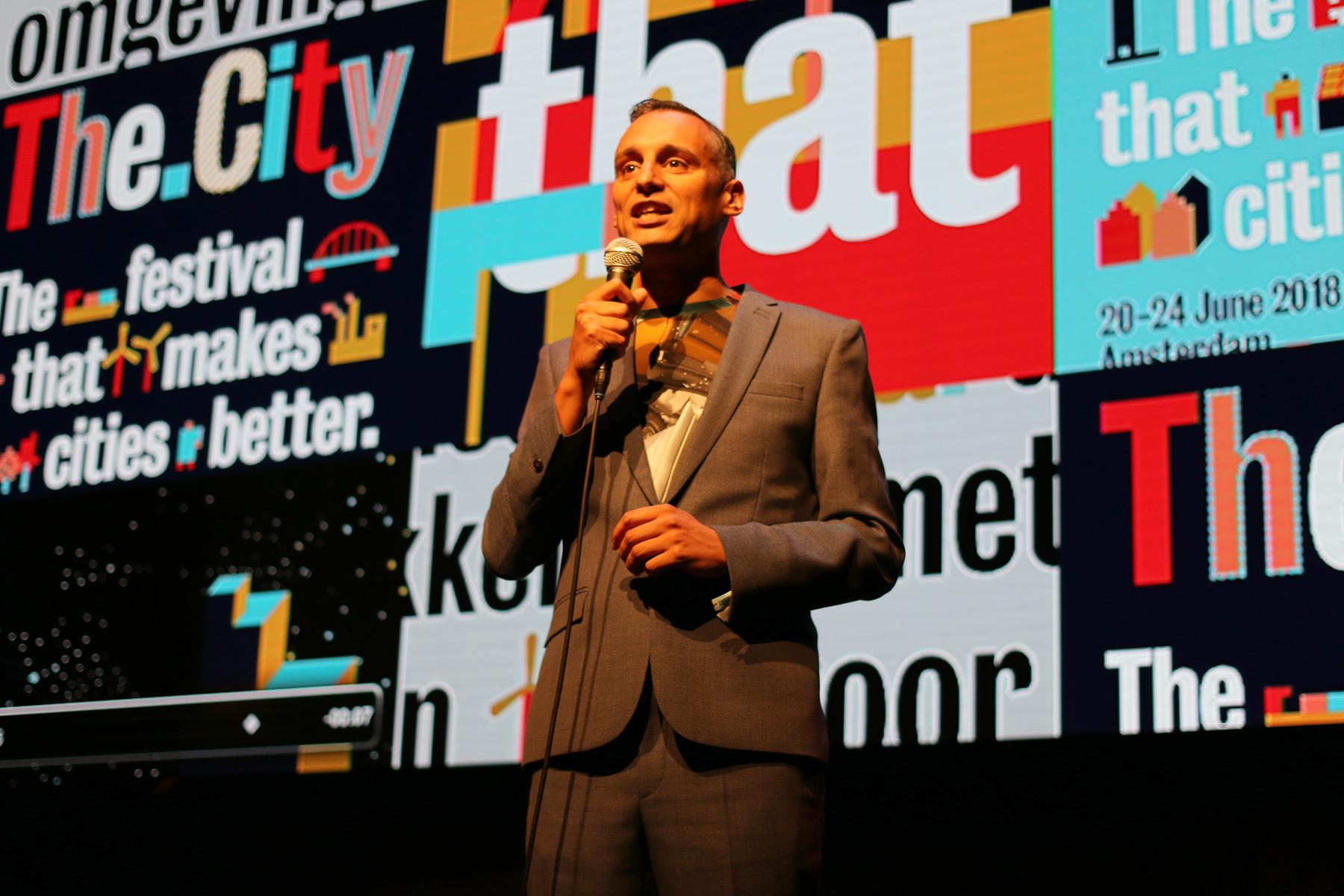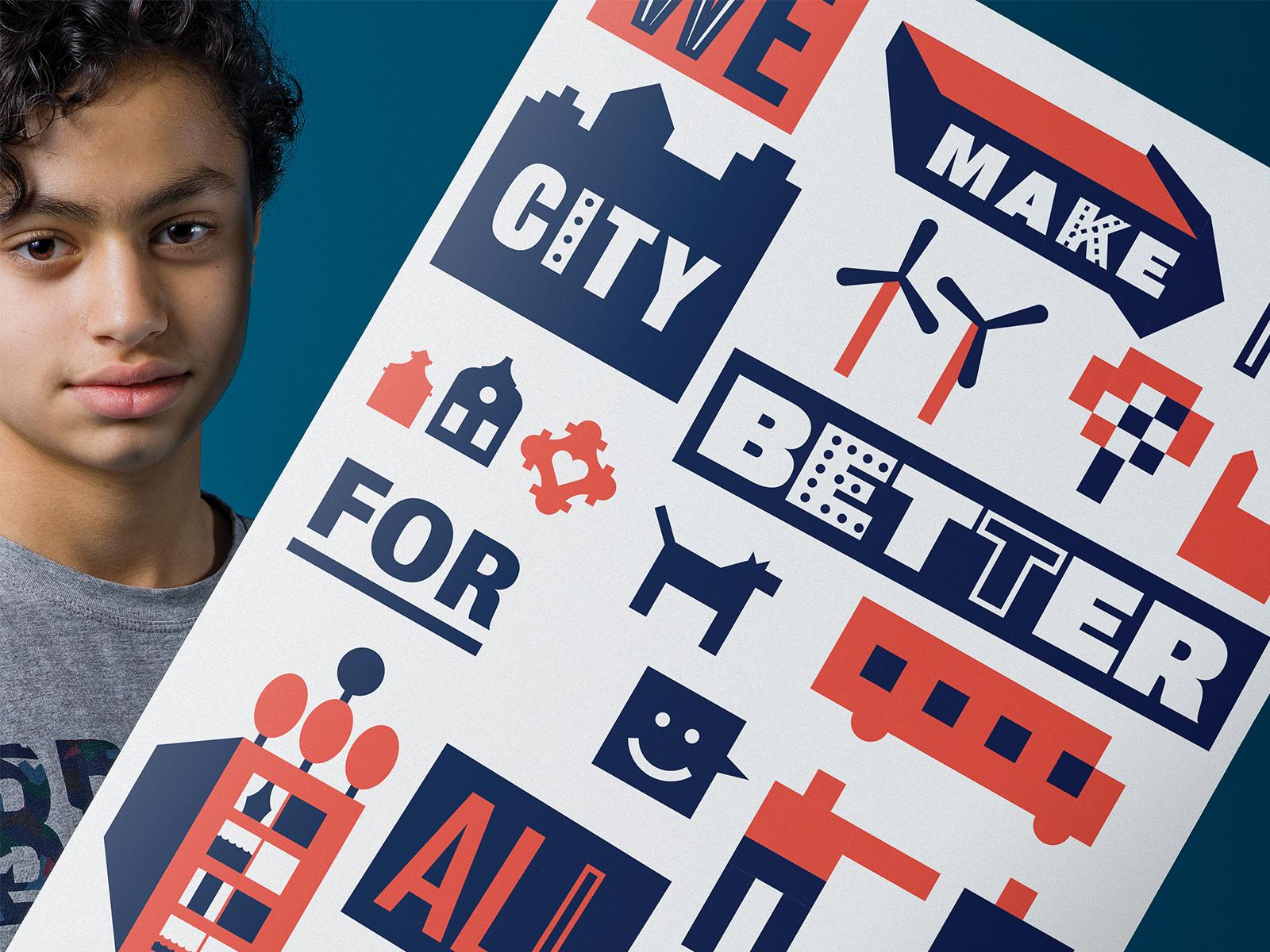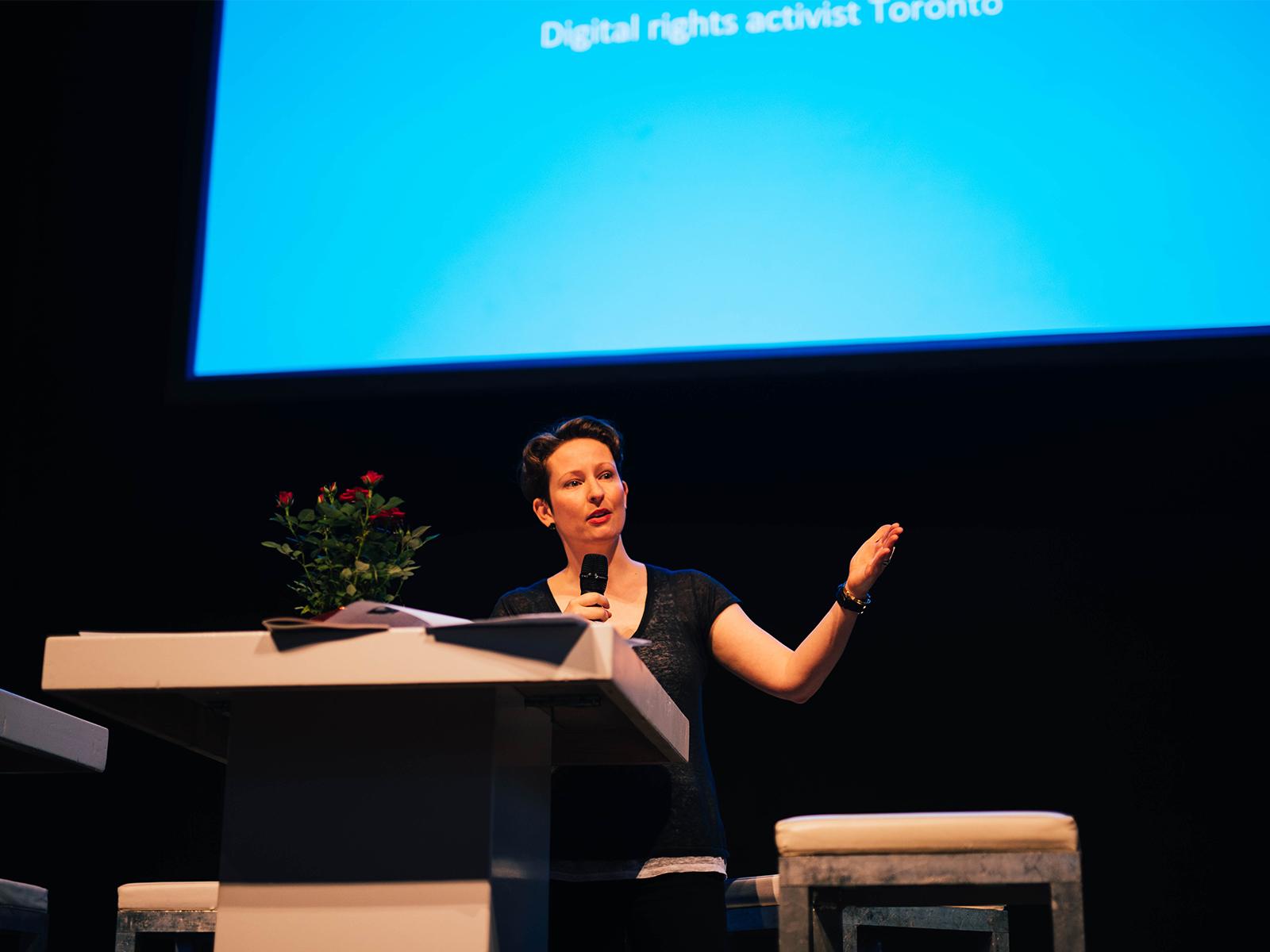By Mark de Boorder
On Thursday the 21st of June, the exciting conference Next Generation Cities took place. During the conference the positive and negative effects of technology were debated – both during an inspiring plenary programme with key note speakers, and in break-out sessions that ignited into animated conversations.
In particular, different perspectives were discussed regarding the transformation towards an inclusive digital city. The guiding questions informing which road to take were: 'Who owns technology?' and 'Who owns the city?'. We’ll focus on sharing some of the highlights of what the acclaimed speakers and panelists brought to the fore during the plenary part of the conference.
From 'Smart Cities' to 'Shared Cities'
As head-initiator of Next Generation Cities, Marleen Stikker (Director of Waag) started off, setting out her vision for the city. For her, it is crucial to take into account the effects that technology has on the fabric of the city. Only focussing on 'Smart Cities' is too narrow-sighted. Looking back at the last twenty-five years, we’ve seen that big corporations decided what counted as 'Smart'. She adds that since the 80s the focus of technological innovations lay primarily with economic growth and making revenue.
Privacy and the sovereignty of citizens were seen as secondary issues – if they were even on the agenda. The functioning of market and state software has a high tendency to be closed-off to citizens. For technology to be democratic and inclusive, citizens have to be involved in its development. According to Marleen Stikker, to make right for the last twenty-five years of market-ruled technological innovations, we need at least twenty-five years to transition to a new system that is based on the commons. By this she implied that we better start now in making a move from 'Smart Cities' to 'Shared Cities'.
Put social and ethical standards at the core of technology
Hereafter, the Chief Technology and Digital Innovation Officer of the municipality of Barcelona, Francesca Bria, joined Marleen Stikker and moderator Farid Tabarki on stage. She shared insightful ideas on how to create more inclusive technologies. For her, to devolve power regarding technological developments back to citizens, it is important to chart out their needs. For example, to develop new technologies in relation to housing, you first have to find out what citizens want the future of housing to be like. She stressed that it is important to make the basis for technology more social and to put ethical standards at its core, instead of using the gathering of data (and money) as the primary motivator for making new products and software.
The message to put power back into the hands of citizens also stood out in the words of the strongly opinionated Richard Stallman, Chief GNUiance at the GNU project and President at the Freedom Software Foundation. Stallman directly made clear his scepticism regarding companies throwing out the fishing net to gather as much data as they can, only to make money of it. "Forget about the term 'sharing economy', it is just a marketing term", he added.
The difference between free software and 'free' software
For Richard Stallman, to redirect power back to the people, the emphasis should lie with the development of ‘free’ software – because software is not free by necessity. By this he implies that when you use software that is available free of charge, you must be critical if it doesn’t affect your personal freedom. Always consider who gives the instructions to your computer. Is it you? Or do the built-in structures steer your behaviour in a certain direction? Making it questionable whether you are freely and autonomously navigating your device. And what about the use of technology by governments and companies to spy on us, he rhetorically asks? "When they say 'Smart', read 'Spy', because it almost always true."
Richard Stallman sums up some concrete strategies to help people to take matters into their own hands. People should learn how to change source codes, thus gaining knowledge to develop ‘free’ software. This enables them to retain their autonomy while making use of their devices. An important aspect of this is that they should organize this programming in a collective effort, whilst distributing the copies of their software to others. In this way, he says, "people can escape subjugation from the owners of proprietary programs." But it is not only the people themselves who should regain technology for the good of the collective. He firmly adds that public organisations have the moral obligation to use 'free software', in order to serve the interests of their citizens.
Collaboration is key
Putting citizens first is also the prime motivation for Theo Blackwell, the Chief Digital Officer of London. However, his ways of working towards this goal are different, he says. In his strategy he takes into account that the teaming up between government and the private sector could be a source for innovation, making clear that he is not as wary as the former speakers regarding the misuse of technology. At the end of his talk he underlines this by stating that he finds it highly disputable to say that governments only want to spy on their people to influence them. Claiming this, for him, "is doing a disservice to public service".
Even though his focus on 'Smart Cities' contrasts with the ideas of the previous speakers, he says he also aims to install a more citizen-informed approach to creating technology for governmental use. This is reflected in the following statement he quotes from one of his colleagues: "But what we need to do is not to think about making gadgets. We need to think about plumbing." By this he stresses that some of the causes of the clogged ICT infrastructure lay in the one-sided view of technological innovation only for its own sake, not taking into account the needs of citizens.
Blackwell also sees that cultural institutions can play a big role in the transition to a more open digital ecosystem. This underlines the important role organisations like Waag and Pakhuis de Zwijger are playing by organising this conference in collaboration with governments and knowledge institutions during WeMakeThe.City. By bundling their forces they are advancing a shift in our behaviour and thinking.
Technology could be good, but also bad and ugly
We finish this reflection with some interesting insights by Dan Hill. He is an Associate Director at Arup, an interdisciplinary company using technology to improve cities. During his talk he showed concrete examples of the positive effects it can have when citizens co-create and are involved by governments. One of the examples is the development of a transparent digital screen, showing information about urban development plans when you point it at a certain urban area. It also immediately sends out a pop-up message where the dates for the next neighbourhood meeting are shown, so people are motivated to participate in the discussions regarding the future of a certain location.
But while highlighting these positive effects, he also reflected on the possible negative side effects of co-creating and redirecting ownership to the commons. By organizing things on a small interpersonal scale, chances are that personal conflicts or animosities will have an effect on people’s willingness to share and co-organize. These nuanced viewpoints are a good illustration of the conclusions that can be drawn from this conference on a whole.
Most important lessons
Firstly, that citizen participation in city development is key in creating better cities and neighbourhoods, but that we also have to be mindful of the potential pitfalls of practices of co-creating. Secondly, that technology is not inherently ‘good’ or ‘evil’. It is not the Holy Grail in advancing the interests of citizens, nor an inherent threat to it. In the end, it is people who decide in whose favour technology is used. Or, in the words of Dan Hill: "A good app for a taxi is not a bad idea. It is a good idea. [But to make it work in the right way] is a question of ownership."
The speakers have provided us with important insights to guide us through the capricious landscape of technological innovation, also learning us which questions to ask: 'Who owns technology?', 'Who owns the city?' And maybe more important: 'How do the answers to these questions inform the next steps to becoming a prime example of a next generation city?' Let’s start today with finding the answers, so we can act on what we find. After all, what we do today is what makes up our tomorrow.
This event was organized by Waag, Amsterdam Smart City, the CTO Office of the City of Amsterdam, Pakhuis de Zwijger, Maastricht University, Amsterdam Institute for Advanced Metropolitan Solutions, Amsterdam University of Applied Sciences and DI020.


